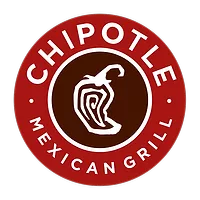Learning from Chipotle: Ensuring Food Safety at All Levels
They say any press is good press. But Chipotle’s recent Escherichia coli outbreak is certainly not good press. To date, at least 42 people have been impacted by the virus and the company’s 43 effected locations are just starting to reopen. As of November 10, nearly 25 food samples taken from locations in Oregon and Washington have found no trace of E. coli, although results are still pending from additional tests.
Chipotle is a great brand with a very strong following and should endure this unfortunate situation. However, while the outbreak was not the sole responsibility of Chipotle, they are the ones in the news.
Incidents like this remind us of how important stringent food safety procedures are in this industry. There is a high level of trust in the food supply chain that is often taken for granted. Consumers put their trust in the hands of the restaurants that they patronize, restaurants put their trust in the distributors, distributors put their trust in the manufacturers and freight companies, manufacturers put their trust in the growers of the raw materials, etc. Just like with any sports team, the food supply chain is only as strong as its weakest link. This is why constantly enforcing food safety protocols throughout every stage of the food supply chain is critical.
According to the U.S. Centers for Disease Control and Prevention, multistate foodborne outbreaks during 2010-2014 include:
• An average of 24 multistate outbreaks each year, each involving 2 to 37 states.
• Salmonella accounted for the most illnesses and hospitalizations and was the cause of the three largest outbreaks, which were traced to eggs, chicken and raw ground tuna.
• Listeria caused the most deaths, largely due to an outbreak caused by contaminated cantaloupe in 2011 that killed 33 people.
Needless to say, the foodservice industry is high risk for foodborne illness. So what is the industry doing to reduce such outbreaks in the future?
In the case of Chipotle’s most recent E. coli contamination, the company should be given credit for how they handled this situation. They recognized the critical nature of the situation and closed 43 stores in the potentially affected area, putting their customers’ safety ahead of sales. While this does not relieve the company from pending lawsuits or consumer and investor backlash, it does show a commitment to its customers and a willingness to take aggressive action against further contamination.
This should be the same guideline used by any restaurant or foodservice establishment as putting customers’ needs and health first should help reduce the amount of criticism brands can experience when such situations occur.
Chipotle also took swift and decisive steps to minimize further contamination by implementing immediate actions and cooperated fully with health officials. Additional steps Chipotle has taken includes the disposal of food, a deep cleaning of its restaurant and the hiring of two food safety consulting firms to help the company improve product safety.
These steps have been taken to help the company avoid future outbreaks although it should not take an episode of this nature to get foodservice operators thinking about ways to avoid of these types food safety issues.
Just as what the industry recently experienced with the Avian influenza outbreak, foodservice operators should constantly be monitoring their supply chain and taking the necessary measures to randomly test food products before they go in use. This includes the prevention of cross-contamination of products, which can be mitigated by thoroughly washing hands, counters, cutting boards, utensils and anything else that may come in contact with raw meat and other raw materials.
It’s important to note that even though many foodservice employees wear gloves during food preparation, gloves do not adequately protect against food contamination. Gloved hands can contribute as much if not more bacteria to foods and prep surfaces, being a cause of cross-contamination. Gloves should be changed frequently, especially when employees move from working with one type of food to another; such as raw meats to preparing vegetables. However, even the best gloves are no substitute for regular, thorough hand washing.
While there is no fail-safe solution for E. coli prevention, operators can take offensive action to reduce customer risk. In addition to measures taken to avoid cross-contamination, all imported or domestic fruits and vegetables should be properly sanitized prior to service and all vegetables should be cooked to a core temperature of at least 160 °F for at least 15 seconds. This will help to kill any E. coli bacteria. And of not cooked, fruits and vegetables should be scrubbed to remove any dirt or other material.
While some of these precautions may seem common sense, communicating them to front line workers should be a part of any prevention plan foodservice operators have in place or are developing. These workers are extremely busy during peak hours—and even during non-peak times when they are focused on food preparation for the next rush. So having constant reminders of proper food handling and safety procedures could keep these practices top of mind.
It is never a positive situation when someone gets sick from a food safety-related issue, but this should be a reminder that there is always risk and we as foodservice operators can’t ever get lazy or cut corners when it comes to food safety in the supply chain. As quoted by Sun Tzu, “In the midst of chaos, there is also opportunity.”
Wade Winters is the vice president of supply chain for Consolidated Concepts Inc., a purchasing partner for restaurants in the U.S.
Looking for quick answers on food safety topics?
Try Ask FSM, our new smart AI search tool.
Ask FSM →







